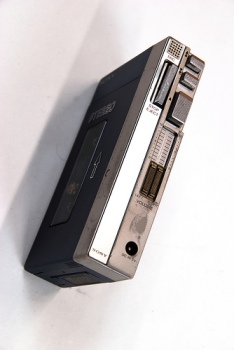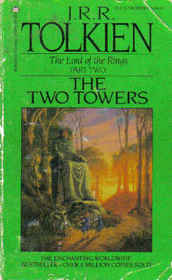The drums on R.E.M.’s first album Murmur and its follow-up Reckoning sound completely different. I’ve listened to these albums on and off for twenty years, and I hadn’t paid attention to the drums until recently.
Here’s how it happened: I read J. Niimi’s book about Murmur, a delightful exploration of its recording, lyrics, and meanings. Then I sat and listened to the whole album through headphones. Just sat and listened. Then I read Greg Milner’s Perfecting Sound Forever, a book that, among other things, has reminded me how much I haven’t been hearing in the recordings I have. Then I decided to read a bit about how Reckoning was recorded. Then I sat and listened to the whole album through headphones. Just sat and listened.
And there’s a real difference: Murmur’s drums, recorded in a booth dedicated just to drums, are clean, distinct, a bit tinny–“disco,” according to one source I can’t find any more–and, to my ears, not really worth saying much about. But Reckoning‘s drums are rock-and-roll, strong, and intense. It sounds obvious to me now. I can’t unhear.
But here’s the thing: for years, I’ve always thought of those two records as having the same sound, more than any other R.E.M. records. They were twinsies, with what I’ve always thought of as similar, simple liner notes; similar, simple songs; similar, simple meanings.
How much of that judgment, though, came from my personal history with those two records–my first R.E.M. albums bought on CD, bought at the same time, shelved next to each other, and paired by me (not by them or by the sounds of their drums) as a sort of disc one and two of a double album?
Really, though, it’s more like this: there is indeed a double album effect going on here, but each album is a disc one and me, my body, and my memories are an always-present disc two.
***
Here’s Thomas Rickert: “ambience puts place, language, and body into coadaptive, vital, and buoyant interaction” (via).
Buoyant: it floats. I float. And I float because I’m enmeshed in something else that is denser than I am.
The spine of Reckoning: “File under water.”
***
I didn’t like R.E.M.’s first two albums all that much, at first. I wasn’t really their intended audience, either: I first heard them ten years after they were released, in 1992, when “Drive” from Automatic for the People (album #8) was on the radio stations I was starting to listen to. This was sixth grade, which I musically associate with Automatic, Pearl Jam’s Ten, Dr. Dre’s The Chronic, and Arrested Development’s Three Years. . . .
Autumn Lockwood told me that R.E.M.’s old stuff was better; she made me a tape of Document (album #5, still something that sounds little like Murmur and Reckoning) plus her favorite two songs from Lifes Rich Pageant (“Superman” and “Swan Swan H”).
I liked it. I slowly decided I should methodically own the whole back-catalog, so I joined and re-joined and re-joined Columbia House and BMG until I had most of their albums on tape and CD.
I remember so much about the look and feel of how that music was packaged: Autumn’s yellow tape sleeve with hand-written song titles; my white Automatic tape; Michael Stipe’s changing face: airbrushed inside Eponymous, wrinkled and wise inside Automatic; my tape of Green so faded from leaving it in cars.
In the context of my rediscovery of this band that everyone else had known for a decade, I always lumped Murmur and Reckoning together as kind of weird sounding, with something distasteful that I couldn’t place. Lifes Rich Pageant somehow sounded right to me, like the R.E.M. I knew singing songs I hadn’t had the privilege to know yet. The first two albums sounded like a different band; they were part of a context I didn’t know anything about (early 80s college rock); they were a swimming pool I had been too young to play in.
But here’s what I wonder: Murmur and Reckoning were my first R.E.M. albums on CD. Was this a band that, for me, was fundamentally tied to the medium of the cassette? Was it wrong, or impossible, for me to enjoy them any other way? And what does it mean that I chose to get their oldest records on the newest recording technologies, like watching a John Wayne movie on Blu-Ray, or watching recordings of old musicals on YouTube, or listening to digital versions of old cylinder recordings?
No, those parallels aren’t right. It was more like taking a river–the entire experience of standing with your feet in a rushing, cold, fresh-smelling river–and shoving the whole thing into a 1-liter Nalgene bottle, and then sipping from the bottle, and then saying that the river isn’t your favorite river of all the rivers.
***
Milner’s book describes a visit he had with Dr. John Diamond, a man convinced that listening to digital audio is physiologically hurting us:
He encouraged all of his patients, no matter what issues they were working through, to make music a regular part of their lives–listening to it, and, if possible, playing it themselves. But recently he had noticed that music did not seem to be doing some of them any good. In fact, it appeared to make their ailments worse. . . .
It didn’t take him long to figure out that many of his patients were listening to records manufactured from digital masters. Could that be the problem? When he could find them, Diamond substituted analog versions of the same songs or pieces–sometimes even by the same performer–and the music once again proved therapeutic.
(via)
***
I know I want to write about R.E.M. and how my memories affect how I’ve heard their music throughout the years.
So naturally, I go to the section on the canon of memory in my dissertation. The first sentence of that section makes me physically jump back a second, because I think it coincidentally mentions R.E.M., but it turns out I’m just seeing it wrong. The sentence actually reads, “When I hear the word memory, I think of computer memory, in terms of hard drive space and RAM.”
This makes me pause. I wasn’t thinking about a computer’s “memory” when I started this post. But as I write, I’m streaming a 1985 R.E.M. concert from Germany in another browser window, a concert I learned about when I tweeted a quote from an online article about the band:
These days, R.E.M. is wrapped into my digital memory just as much as they were ever wrapped into my body’s memory.
***
20th-century composer John Adams once told an interviewer this:
There is a ten-year-old boy (not a student) who comes over to my house every week or so and plays his music for me. He has a MIDI sequencer at home, and his pieces are all polished and notated with his print software. I don’t discourage him for doing that, but I also point out that there’s no substitute for having plain, awesome musical chops: having a great ear, being able to perform well on an instrument, and having a huge, encyclopedic knowledge of music. Composers should know everything.
(via)
***
For a couple weeks now, I’ve been listening to the early R.E.M. albums over and over, checking out the special editions from the library, streaming various shows, reading the lyrics on various websites.
And in a digital, analog, distant, embodied sort of way, I’ve taught myself to love these records. Really, really love them. Eventually, I know I’ll move on to the next records, paying attention to them all in this new way, with headphones and lyric sheets in front of me. But I’m not ready yet. I want more early R.E.M.
(And in the back of my mind: can you manufacture love? Can you manufacture a river?)










